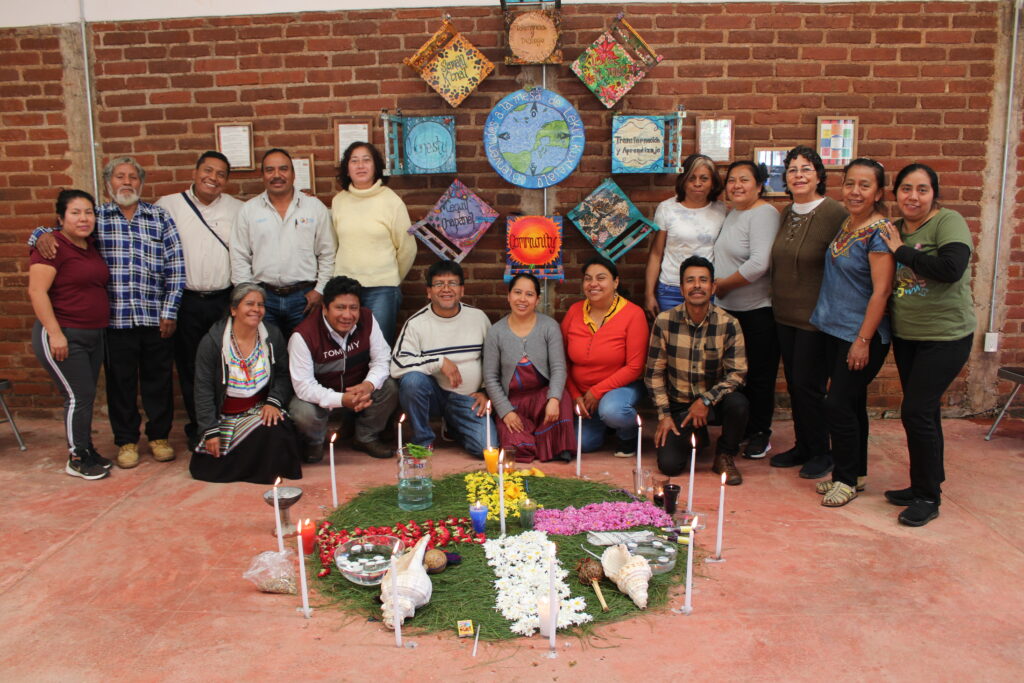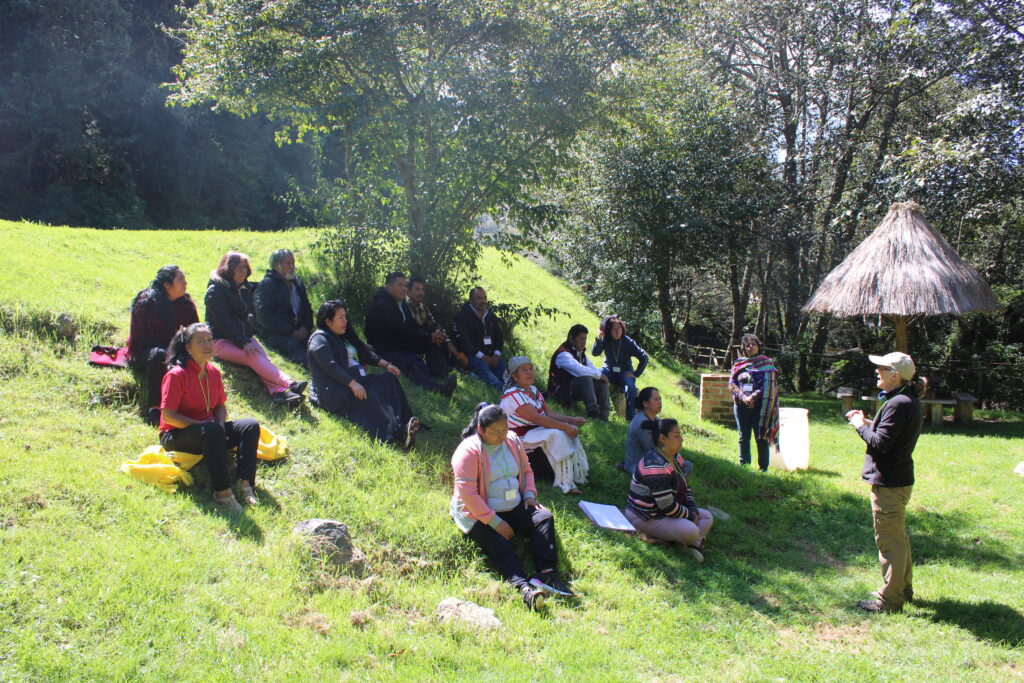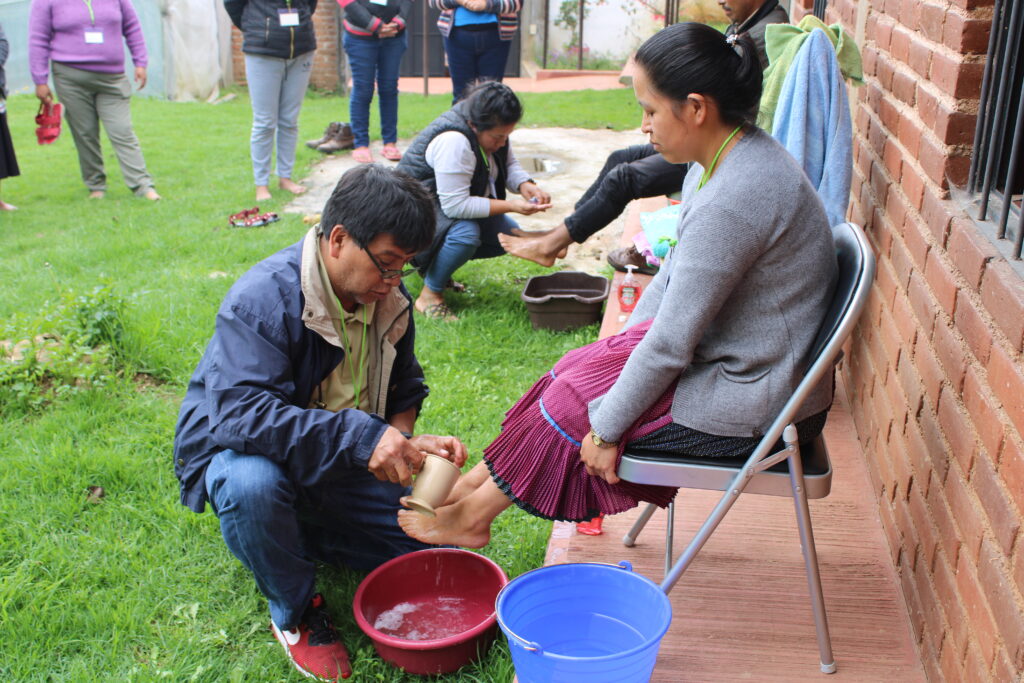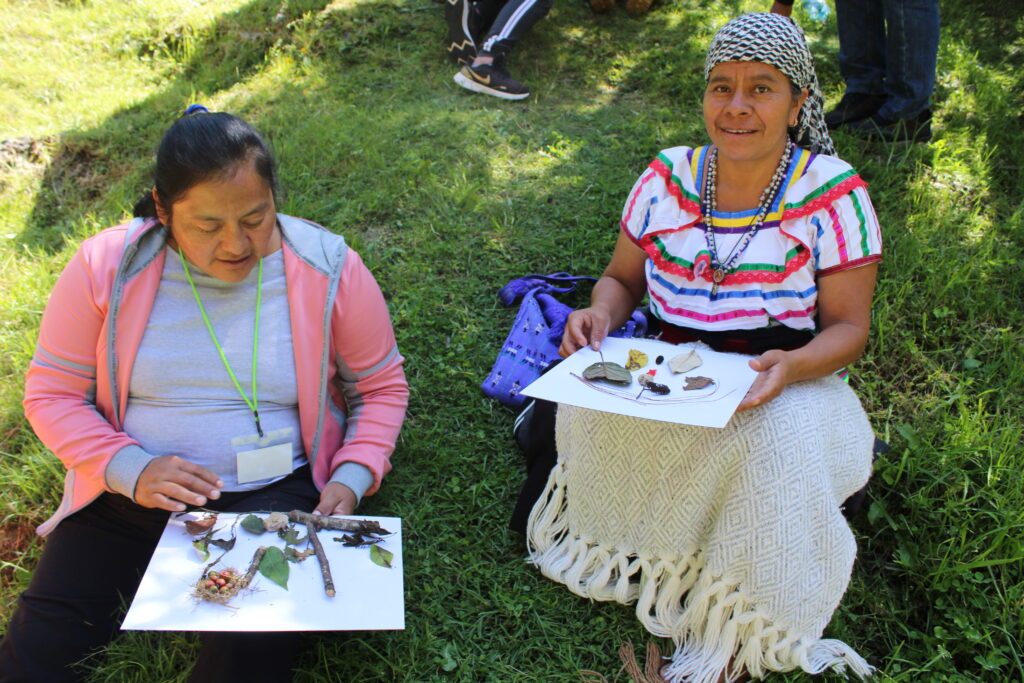Defenders of Life and Mother Earth
Elena Huegel serves with the Intercultural Research and Studies Institute (INESIN) in Mexico.
A gentle drizzle bathes the forested mountains around the city of Jovel, the place of tall grasses, as San Cristóbal de las Casas is known in Tzotzil, the original Mayan language still predominant in this high valley in the state of Chiapas, southern México. “The toads are knitting today,” I comment to one of the newly arrived community leaders who will be participating in a three-day retreat. We both turn and look at the mists cascading over the summits on the far side of the valley, and she laughs at my reference to an ancient myth about foggy blankets woven by toads to cover the crests of the mountains. She tells me it feels good to laugh and smile after so many months of fear and troubles.

The Defenders of Life and Mother Earth are local Mayan leaders who serve the Catholic Church in local communities. They have been invited to this retreat at the Institute for Intercultural Studies and Research to nourish their spirituality through reconnecting with Mother Earth, guided on this occasion by living water. They come from communities standing up to the invasion by cartels trafficking drugs, weapons, and people. They come from communities straining to defend life in the face of confusion, violence, and multiple forces that are tearing at the fabric of ancient values, relationships, culture, language, and religion. They come, and they are exhausted.

It takes a conscious effort to enter into the slower pace of this retreat. We listen to ourselves and pause to meditate. We listened to each other, and pause to reflect. We listen to God, the Heart of the Sky, the Heart of the Earth, and pause to pray. We take off our shoes and walk in the gardens of the Institute opening our hearts and minds to awe and amazement. Then we gently wash and anoint each other’s dirty and tired feet, remembering Jesus’ example and affirming our call to serve while recognizing our need to be cared for by others.
At a local private reserve, we listen to the song of a small river as we collect items from the forest floor to create transient art. After expressing our gratitude for the waters in the river, the waters in the clouds and air, and the waters in our bodies, we return the collected items to their places in the environment. We compare situations in our lives to the cycles we observe: what do we want to flow like water, what do we want to create, what materials do we have, and what do we want to let go of like our transient art. The sun has burned away the fog and dew, and we sit on the grass leisurely talking, sharing “tortas” (the delicious Mexican version of a sandwich), and enjoying the simplicity of this peace-filled pause in the constant demands of our daily lives.

With the sound and sights of the river rushing across boulders on its way down the mountain, we explore the River of Integration, a metaphor created by Dr. Daniel Siegel, a pioneer in the field of interpersonal neurobiology, in his book Mindsight: The New Science of Personal Transformation. We each draw our own mountain river whose channel represents integration, one rocky bank stands for chaos, and the other bank, rigidity. It is a personal and community challenge to navigate the river of integration without getting stuck either on the rocks of rigidity or chaos. Each of us spends time painting our personal lives as this river, and then we compare the river of integration to our churches and communities. The conversation is as deep, rich, and flowing as the river itself.

One church and community leader, about 35 years old and father of two girls, reflects: “it has been a long time since I have taken a pause from all of my responsibilities. My daughters complain that we no longer picnic at the park together; my wife expresses her concern about my health because of the stress I am under; I have table games at home put away in a drawer because I don’t have time to play. I need to find a new balance in my life. Going to the park, sharing a meal or taking a nap, and playing a game are simple changes: I will find ways to listen to my family and lead a more balanced life. I want my life to flow like an integrated river, clear, pristine, and life-giving.”
As a member of the staff at the Institute of Intercultural Studies and Research, it is through collaboration with others that I continue to discover new ways to accompany community and church leaders as they pause and then grow in hope, dignity, and healing. These pauses to listen to ourselves, to others, and to God give us strength to continue to walk together through the uncertainties of the Chiapan context.
Elena Huegel serves with the Intercultural Research and Studies Institute (INESIN) in Mexico. Her appointment is made possible by your gifts to Disciples Mission Fund, Our Church’s Wider Mission, and your special gifts.
